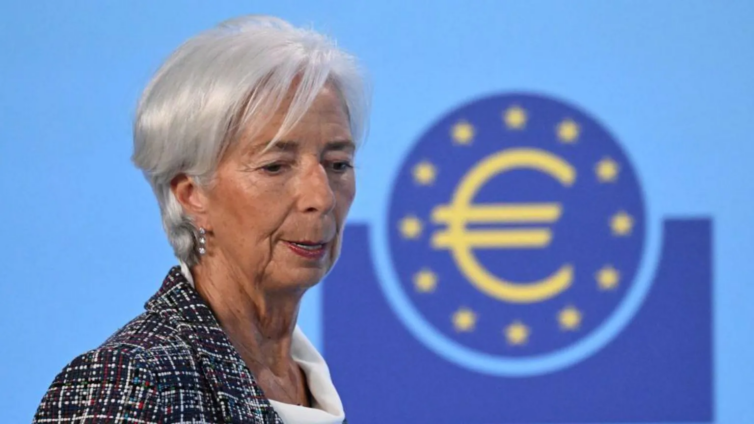The European Central Bank (ECB) has cut interest rates for the sixth time in nine months as it seeks to bolster eurozone economic growth.
The bank stuck to its plan to lower rates in the face of economic challenges, including threats of US tariffs and plans to boost European military spending.
The ECB cut its main interest rate to 2.5% from 2.75%, and once again reduced its forecasts for economic growth in the eurozone.
The latest cut came as a sell-off of German government bonds spread to other bond markets, including the UK.
The sell-off came after Germany's move this week to increase military and infrastructure spending.
Political parties in talks to form a new government plan to pay for this by loosening Germany's fiscal rules, raising the prospect of a big increase in debt.
In response, longer term German bonds saw their biggest sell-off in years on Wednesday.
This pushed borrowing costs - as measured by the yields on the Germany's 10-year bonds - up by biggest daily amount since May 1997.
On Thursday, German borrowing costs - as measured by the yields on the country's bonds - continued to rise.
Yields continued to rise on Thursday, hitting 2.929% at one point - the highest level since October 2023.
The increase has had a knock-on effect on other countries, with UK borrowing costs also increasing.
UK government borrowing costs have already risen due to concerns about persistent inflation and interest rates not coming down as quickly as previously thought.
However, Lindsay James, an investment strategist at Quilters, said the market was still expecting the Bank of England to make two further rate cuts in 2025, "with recent inflation data reasonably encouraging".
Challenges ahead
With inflation getting closer to its 2% target, the ECB said its interest rate cuts were "making new borrowing less expensive for firms and households".
But it trimmed its prediction for eurozone growth, putting expansion in 2025 at just 0.9%, only slightly above the 0.7% pace recorded last year.
The ECB faces a number of upcoming challenges as it tries to get inflation to its 2% target.
The eurozone economy may suffer if the Trump administration goes ahead with plans to impose "reciprocal tariffs" on every country that taxes US imports.
Latest Stories
-
Chieftaincy Institution in Ghana at a Crossroads – A Perspective by Andrews Kofi Anokye (KOANS)
36 minutes -
Offinso highway robbery: Police mount hunt for killers of bus conductor
36 minutes -
‘We will fish him out’ – DCOP Teye-Cudjoe vows to arrest soldier behind Nyinahin shooting
46 minutes -
Traditional leaders laud AngloGold Ashanti’s youth dev’t initiatives in Obuasi
54 minutes -
Cyra Pamela Koranteng resigns as Judicial Secretary, deputy elevated
1 hour -
Benjamin Arthur hands over as Chief Executive of Fair Wages
1 hour -
NPP calls for submission of constitutional amendment proposals by May 9
1 hour -
ASFC 2025: Ghana girls secure final berth after dramatic 3-2 win over South Africa
1 hour -
E Vibes to host Evergreen Movement Band on Musical Band series
2 hours -
Rev. Charles Owusu decries partisan divide in Chief Justice impeachment discourse
2 hours -
Education Minister charges CIMG to champion national branding and public sector marketing
2 hours -
Photos: Mahama swears in newly appointed Military Service Commanders
2 hours -
Prosecute military officers responsible for Nyinahini killing – Chief
2 hours -
TTH doctors resume emergency services after Dagbon Overlord’s intervention
3 hours -
President Mahama declares 1st July as National Day of Prayers and Thanksgiving
3 hours

